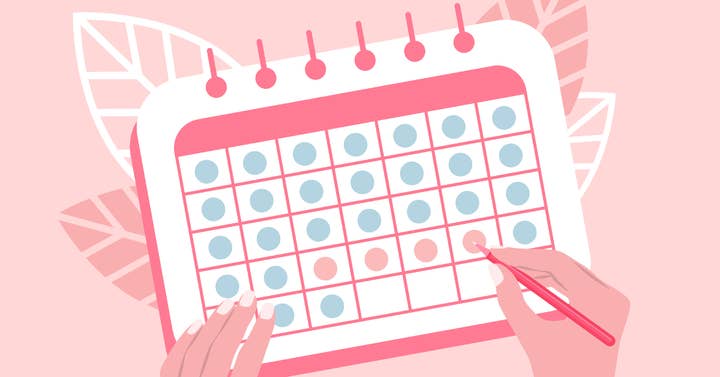A look into the implementation of menstrual leave
GOG head of PR, communication and culture Gabriela Siemienkowicz explains how the digital retailer introduced the initiative
The idea of introducing menstrual leave at GOG was born over a year ago during a meeting, when several employees drew attention to this common problem.
The subject of menstruation and ailments associated with it remains taboo in many places but we were one of the early adopters of menstruation-related days off.
The history of menstrual leaves
Approximately 90% of menstruating people experience mild symptoms associated with premenstrual syndrome, such as swelling, headache, and mood swings. About 20% of them complain of symptoms that prevent them from functioning on a daily basis, such as nausea, abdominal pain, back pain, and fatigue. However, even though most menstruating people share similar symptoms, employers from every country treat their needs differently.
The history of menstrual leave dates back to the 20th century. Japanese law included a record about it as early as 1947. In South Korea it appeared a little later, in 1953. In the case of Japan, the employer is obliged to grant menstruating people days off, but is not obliged to pay remuneration for the period of leave; in Korea, employees may receive additional pay if the leave is not taken.
In Europe, menstrual leave is still a taboo subject. Spain is the first and only country where the law includes a provision on menstrual leave; the regulation has only been in force since February 2023. It is also a fairly new topic here, in Poland. The first instance of menstrual leave was introduced in our country only in 2020 (it was the employer's own initiative, not dictated by the law).
If a menstruating person was to allocate one day a month for rest they need, using only the available pool of days off, they would use up more than half of them
Despite the fact that Polish labor law is becoming more and more similar to the Western European model, the transformation that took place in Poland at the end of the 1980s means that some employees' rights are still being shaped – among others, menstrual leave is a fresh subject and quite misunderstood in our country.
But the lack of dedicated menstrual leave across territories does not mean that menstruating people do not take time off work for their period. According to a survey conducted in 2018 by Dutch researchers, almost 14% of women spent days from the general pool of leaves on dealing with ailments and around 3.5% of them do it every month.
Although the number of days off an employee is entitled to in Poland is definitely greater than, for example, the USA, it still does not equal the European standards. If a menstruating person was to allocate one day a month for rest they need, using only the available pool of days off, they would use up more than half of them.
Many opponents see menstrual leave as an opportunity to overuse sick days and avoid work. Potential beneficiaries of this solution additionally believe that statutory menstrual leave may lead employers to avoid employing menstruating employees. It is worth noting, however, that in countries with access to menstrual leave, the use of dedicated days off is low, mainly because of unfamiliarity of privileges, embarrassment in front of superiors (usually men), as well as lack of remuneration or greater benefits related to unused leave, high pay differences, and fear of dismissal.
The reasons behind the aversion to menstrual leave should therefore be sought in the work system itself, and not in the potential privilege. In fact, it's hardly a privilege if menstruation itself is an unpleasant experience.
GOG's approach to menstrual leave
Our implementation of the menstrual leave, which started in April 2022, was not only a test for us, but also a way to learn about the needs of our employees and adjust the program in a way that would be most beneficial for them.
Initially, we started by offering one day off per quarter and then, over the course of the year, we examined whether it would be necessary to increase the number of available days to one per month, which – following the feedback we received from employees – we finally did in January of this year.
We also noticed a positive psychological aspect for our team members. Many eligible people commented positively on the changes being made, even if they had no need to take advantage of the benefit. It is because the idea of being able to take an additional day off, if needed, gave them comfort. As we found out, only employees in need actually use it, since just about 16% of available menstruating days were used by our workers during the test program.

Taking menstrual leave is also a very simple process in itself. All you need to do is submit an application the day before or on the day menstrual pains occur; the request is processed immediately. The direct manager can't deny the application.
Currently, we do not plan to expand the implemented model, but we are not ruling out such possibility in the future. We have ongoing discussions with our employees, wanting to tailor the leave to their needs – after all, the program is created with them in mind.
We will certainly expand the current menstrual leave if we receive signals that there is such need. Menstrual leave is just one example of inclusive benefits that foster equity in the workplace. We are definitely open to implementing more of them and we definitely will, according to the needs of our employees.
How to start the discussion around menstrual leave
When participating in the discussion around the idea of menstrual leave, it is important to lean into the needs of our employees – what they face and how we can make it easier for them to function during tough periods of the month. Such changes will occur differently in each workplace; every leave program should be adjusted to the needs of the employees. Our priority is to engage in dialogue, raise awareness and present solutions to both the menstruating employees and those not affected by it.
Changes start with a dialogue – identifying the problem and finding the right solution. In our case, the inspiration behind the menstrual leave introduction was an employee network meeting called Women of GOG during which we shared a similar outlook on the painful menstrual symptoms we all had to deal with at some point in our lives.
It turned out that many of our employees were in favor of introducing additional days off, allowing them to rest during their periods. Their symptoms are equally important and require appropriate treatment in order for them to return to full strength.
When participating in the discussion around the idea of menstrual leave, it is important to lean into the needs of our employees
Our employees reacted positively to the idea – both those in need of the benefit and those who didn't. The only doubt that arose at the time came from the lack of knowledge of one team member who asked how the menstrual leave will relate to other, irregular illnesses. We arranged a special AMA session in order to assure full transparency on this sensitive topic. We quickly explained that periods cannot be interpreted as an illness and all employees are still entitled to sick leave.
For this reason, we also put more emphasis on open discussion and a broader presentation of the topic in the company – this way we could educate and get people used to what and how menstruation manifests itself, especially since the subject has been a taboo in our society.
This way, we created a safe space where employees are not afraid to talk and signal their needs, while people affected by the discomfort can find understanding in their co-workers. We are aware that there is still a lot of work ahead of us, but starting the menstrual leave program is the first and big step towards creating an inclusive and open workplace.
Online opponents
Positive feedback from employees does not mean that we didn't come across any obstacles. The first negative reactions to our initiative appeared in the comments under a post we made on LinkedIn. After the official introduction of menstrual leave into the company policies, we had to contend with allegations of discrimination against non-menstruating employees.
We knew that continuing the program would allow us to prove the validity of our initiative to its opponents: what it is, how it works and how the company benefits from it. Giving a privilege to a group in need does not mean that we've taken away any rights from other employees. As we mentioned earlier – sick leave is available to everyone.
Non-menstruating people often cannot imagine what periods entail, even if they observe people affected by it in their surroundings.
Giving a privilege to a group in need does not mean that we've taken away any rights from other employees
The critical comments disappeared rather quickly in the flood of positive reactions to our initiative. They were our main source of motivation to continue our work. Many people mentioned that they would like a similar program to be introduced in their workplace. Thanks to such statements, we gained confidence that we can set a path for more companies guided by the idea of inclusiveness, sharing the experience we have gathered and the lessons we have learned based on it. We hope our voice on such an important matter encourages others to follow our lead.
Menstruation has been a taboo subject for so long that people struggling with periods are ashamed to talk about it, and some unaffected still do not understand the severity of menstruation. The introduction of menstrual leave is a great opportunity to educate and teach others about empathy.
In our opinion, questions about menstrual leave are important, because by responding to them we help to make this topic a part of a normal conversation among our team and fight the taboo it creates.
Menstrual leave is a great benefit for many employees. As evidenced by companies that have tested it themselves, additional days off are not abused by employees, and they also increase the well-being of the entire team. It is the employer's responsibility to create a comfortable working environment and inclusivity is one of the most important aspects of today's world.
Gabriela Siemienkowicz is the head of PR, communication and culture at GOG and Women in Games Ambassador. As a team leader, Gabriela's involved in and in charge of Diversity, Equity & Inclusion initiatives, as well as long-term strategic employer branding improvement planning.
Sign up for the GI Daily here to get the biggest news straight to your inbox
